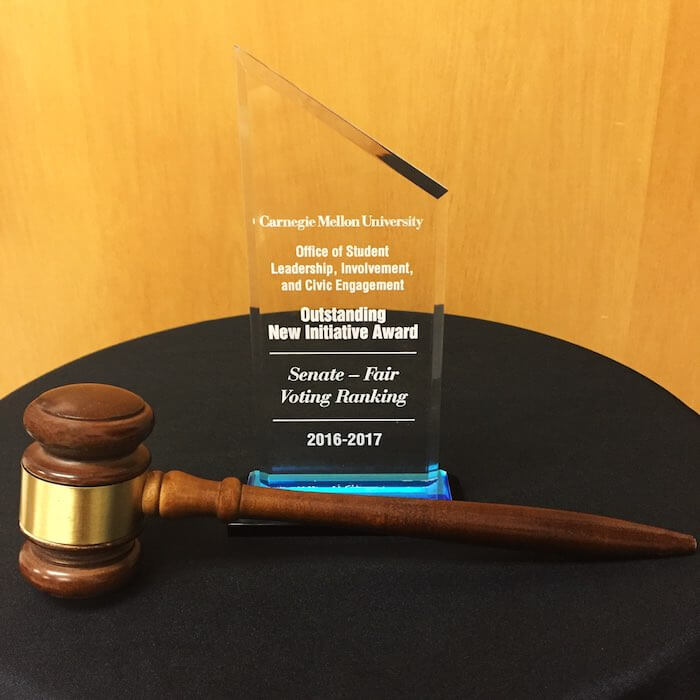CMU Fair Ranked Voting
The reference implementation of the ranked choice voting system for redesigned student government elections at Carnegie Mellon University. (2016 - 2017)

Honors
- SOAR Award for Outstanding New Initiative (2017)
- Used for Student Government and Senate elections at Carnegie Mellon (2016+)
Code
Links
In my tenure in the CMU Undergraduate Student Senate , I was involved in many initiatives aimed at improving the student experience across the university and empowering change within student government. I care deeply about democracy and fairness in electoral systems, and I wanted to apply this to our campus. Elections allocate power and dictate policy, and our voting systems are what decide these elections. Traditional first-past-the-post voting has many flaws, so I worked to implement a ranked choice voting system on campus. Single transferable vote (STV) allows voters to rank their preferred candidates and have their votes transfer as candidates are eliminated or elected. This leads to approximately proportional representation and avoids the spoiler effect of splitting votes between similar candidates.
With no free and open-source election program that was reliably-maintained and fit our needs, the best solution was to create our own. I developed CMU Fair Ranked Voting as a reference implementation of the vote counting system, and together with many other dedicated students, we converted our elections to STV. This software is used to run Student Senate elections and verify campus-wide Student Government elections. I released the code open-source so that other organizations may benefit from fair ranked voting.
I was able to use my expertise and executive position to innovate on how Student Senate works. My work was an excellent example of how the intersection of technology and policy can improve governance.